Search
Remove Ads
Advertisement
Summary 
Loading AI-generated summary based on World History Encyclopedia articles ...
Search Results

Definition
Gaul
Gaul (Latin Gallia, French Gaule) is the name given by the Romans to the territories where the Celtic Gauls (Latin Galli, French Gaulois) lived, including present France, Belgium, Luxemburg and parts of the Netherlands, Switzerland, Germany...

Definition
Roman Gaul
Roman Gaul is an umbrella term for several Roman provinces in western Europe: Cisalpine Gaul or Gallia Cisalpina, comprised a territory situated in the northernmost part of the Italian peninsula ranging from the Apennines in the west northward...
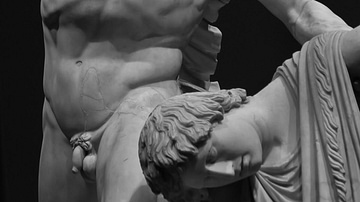
Image
Gaul Killing Himself and His Wife
Ludovisi Gaul; A Roman copy of 3rd century BCE Greek bronze original; 2nd century CE; Palazzo Altemps in Rome, Italy
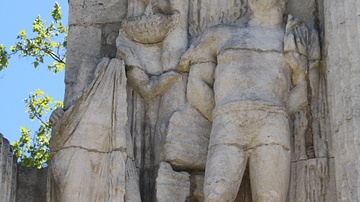
Image
Enslaved Gaul, Arch of Glanum
A detail of the triumphal arch at Glanum, southern France, showing an enslaved Gaul. The monument was built in the early 1st century CE, perhaps to commemorate the city's new status as a Roman colony. The top third is now missing.
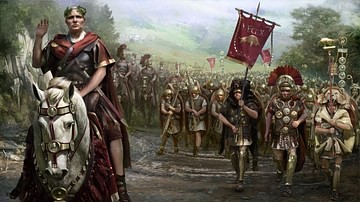
Image
Caesar in Gaul
Artist's impression of how Caesar and his army marching through Gaul may have looked like. This is a marketing picture for the Rome II: Total War DLC "Caesar in Gaul".

Image
The Dying Gaul
Marble copy of a lost ancient Greek statue known as The Dying Gaul, from ancient Rome (c. 230-220 BCE) commissioned by Attalos of Pergamon in honor of his victory over the Galatians.

Image
Roman Conquest & Rule in Gaul, c. 200 CE
This map illustrates the administrative and geopolitical situation in Roman Gaul two centuries after the Roman conquest, which began with Julius Caesar's campaigns (58–51 BCE), bringing the region under Roman control. By 200 CE, Gaul was...
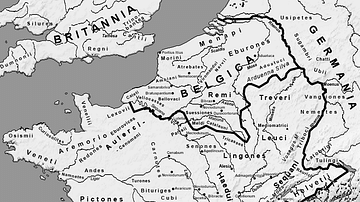
Image
Map of Gaul
A map of Gaul indicating the local tribes, regions, and cities, circa 54 BCE.
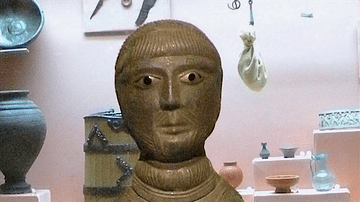
Image
Celtic Warrior, Gaul
A Celtic warrior statue from Gaul. Bronze with glass inlay, 1st century BCE or 1st century CE. From Saint-Maur-en-Chaussée, Oise, France. (Musée départemental de l'Oise)
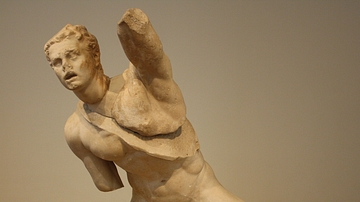
Image
Fighting Gaul
A marble statue of a fighting Gaul. Found in Delos. 100 BCE. (National Archaeological Museum, Athens)